- View all courses
- Taught postgraduate study
- Postgraduate taught degree courses
- Postgraduate taught tuition fees
- Pre-masters for international students
- Funding your postgraduate taught studies
- How to apply for a postgraduate taught degree
- Pre-sessional English courses
- PhDs and research degrees
- Create your own research project
- Find a PhD project
- Funding your research degree
- How to apply for a PhD or research degree
- How to make a PhD enquiry
- Support while studying your PhD or research degree
- Exchanges and studying abroad
- Undergraduate study
- Undergraduate degree courses
- Foundation year programmes
- Undergraduate tuition fees
- Customise your degree
- Funding undergraduate studies
- How to apply
- Tuition fees and funding
- Short courses
- Lunchtime evening and weekend courses
- Summer schools
- Get a prospectus
- Student life
- Accommodation
- Choose your halls of residence
- Apply for accommodation
- Guaranteed accommodation
- Your accommodation options
- Accommodation for those with additional requirements
- International and pre-sessional students
- Postgraduate accommodation
- Couples and students with children
- Renting privately
- Our accommodation areas
- Privacy notice
- Terms and conditions
- Fees and contracts
- Southampton
- Sports and gyms
- Sports facilities
- Sports clubs
- Watersports centres
- Our campuses
- Avenue Campus
- Boldrewood Innovation Campus
- City Centre Campus
- Highfield Campus
- University Hospital Southampton
- Waterfront Campus
- Winchester Campus
- Join our student community
- What's on
- Clubs and societies
- Sports teams
- SUSU places
- Representing you
- SUSU support and advice
- Support and money
- Living costs
- Academic and mental health support
- Support for disabled students
- Part-time work
- Health services
- Research projects
- Research areas
- Research facilities
- Collaborate with us
- Institutes, centres and groups
- Support for researchers
- Faculties, schools and departments
- Research jobs
- Find people and expertise
- Why work with us?
- Collaboration
- Consultancy
- Commercialisation
- Use our facilities
- Connect with our students
- How we operate
- Make a business enquiry
- International students
- International Office
- Partnerships and initiatives
- Visiting delegations
- Visiting fellowships
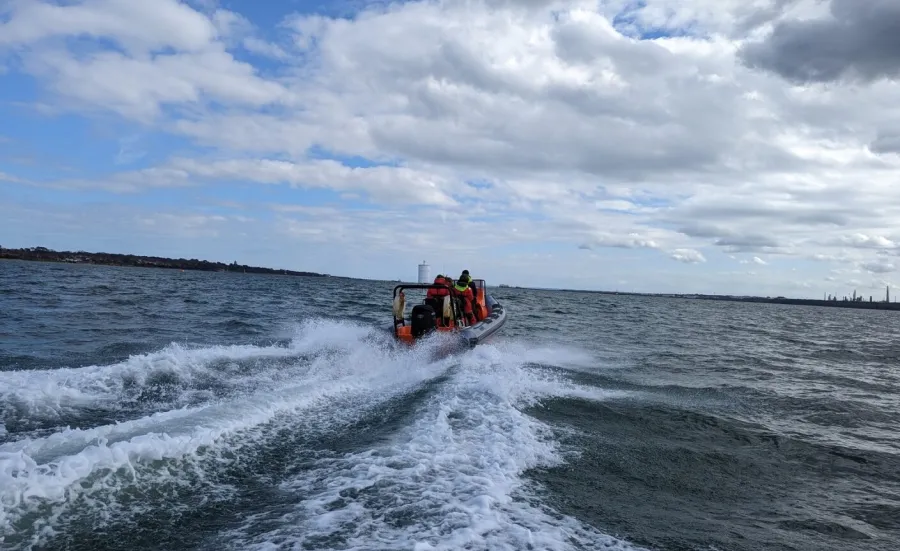

RYA Advanced Powerboat (Day and Night)
Aimed at leisure and professional boaters with intermediate level skills, this course will equip you with the skills to undertake more adventurous coastal trips by both day and night.
About the course
This is an advanced level course for powerboat drivers who already have some intermediate level skills, knowledge and experience. To join this course you must:
- be competent to the standard of the RYA Intermediate Powerboat certificate
- have a thorough knowledge of navigation and chart work, to the level of Coastal Skipper/RYA Yachtmaster certificate
- be 12 or over (under-16s must have an adult on the course with them)
- complete the medical consent form
We also strongly recommended that you hold current first aid and VHF/SRC operator's certificates.
After completing this course, you’ll be able to safely plan and execute coastal trips and return to a familiar port by night.
Advanced Powerboat courses are run on a maximum ratio of 1 instructor to 3 students.
What to bring with you
- warm clothing
- comfortable closed-toe shoes
- lunch and snacks
- water bottle
- sunscreen and sunglasses
- your powerboat logbook
- Coastal Skipper and RYA Yachtmaster theory certificate
What we provide
- boats (6.5 metre Gemini RIBS)
- life jackets
- waterproof jackets and trousers
- certificates
Dates and times
15 and 16 July
9:00-22:00 Mon and 9:00-16:00 Tue
Our courses are available to everyone, but Sport members are able to book at a discounted rate.
Membership type
Southampton Sports Membership
Mayflower Member, Sports Pass or Non-Member
Booking a course
Book your course online
You can also:
- book by phone : +44 (0)23 8059 2119
- book by email : [email protected]
- book in person at Jubilee Sports Centre
Cancelling or rescheduling a course
You can cancel or reschedule a booking by contacting the Jubilee Sports Centre . Your options depend on how much notice you give us. Notice periods are based on the date of your booking, not on the start time.
Notice given
Refund options
7 days or more
Full refund or reschedule to another date
Between 48 hours and 7 days
Full refund if you present a doctor’s note stating why you can't complete your booking
Less than 48 hours
No refund available
When we might cancel your booking
We might need to cancel a booking if:
- the weather means we cannot safely run a course
- staff members are sick and their absence cannot be covered
- we cannot meet our minimum student-instructor ratio
If we need to cancel your booking, we’ll always try to give you at least 24 hours' notice. We’ll also offer to reschedule your booking.
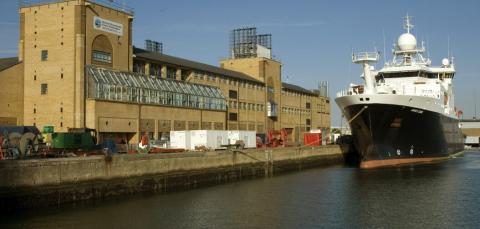
National Oceanography Centre
- Course modules
- Acoustical engineering
- Biomedical and medical engineering
- Civil engineering
- Every day I’m completely immersed in an environment that’s creative in all aspects
- Everything I learn feels so relevant, even If it’s a subject rooted in the past
- Maritime engineering
- Photonics and optoelectronics
- Social statistics and demography
- A missing link between continental shelves and the deep sea: Have we underestimated the importance of land-detached canyons?
- A seismic study of the continent-ocean transition southwest of the UK
- A study of rolling contact fatigue in electric vehicles (EVs)
- Acoustic monitoring of forest exploitation to establish community perspectives of sustainable hunting
- Acoustic sensing and characterisation of soil organic matter
- Advancing intersectional geographies of diaspora-led development in times of multiple crises
- Aero engine fan wake turbulence – Simulation and wind tunnel experiments
- Against Climate Change (DACC): improving the estimates of forest fire smoke emissions
- All-in-one Mars in-situ resource utilisation (ISRU) system and life-supporting using non-thermal plasma
- An electromagnetic study of the continent-ocean transition southwest of the UK
- An investigation of the relationship between health, home and law in the context of poor and precarious housing, and complex and advanced illness
- Antibiotic resistance genes in chalk streams
- Being autistic in care: Understanding differences in care experiences including breakdowns in placements for autistic and non-autistic children
- Biogeochemical cycling in the critical coastal zone: Developing novel methods to make reliable measurements of geochemical fluxes in permeable sediments
- Bloom and bust: seasonal cycles of phytoplankton and carbon flux
- British Black Lives Matter: The emergence of a modern civil rights movement
- Building physics for low carbon comfort using artificial intelligence
- Building-resolved large-eddy simulations of wind and dispersion over a city scale urban area
- Business studies and management: accounting
- Business studies and management: banking and finance
- Business studies and management: decision analytics and risk
- Business studies and management: digital and data driven marketing
- Business studies and management: human resources (HR) management and organisational behaviour
- Business studies and management: strategy, innovation and entrepreneurship
- Carbon storage in reactive rock systems: determining the coupling of geo-chemo-mechanical processes in reactive transport
- Cascading hazards from the largest volcanic eruption in over a century: What happened when Hunga Tonga-Hunga Ha’apai erupted in January 2022?
- Characterisation of cast austenitic stainless steels using ultrasonic backscatter and artificial intelligence
- Climate Change effects on the developmental physiology of the small-spotted catshark
- Climate at the time of the Human settlement of the Eastern Pacific
- Collaborative privacy in data marketplaces
- Compatibility of climate and biodiversity targets under future land use change
- Cost of living in modern and fossil animals
- Creative clusters in rural, coastal and post-industrial towns
- Deep oceanic convection: the outsized role of small-scale processes
- Defect categories and their realisation in supersymmetric gauge theory
- Defining the Marine Fisheries-Energy-Environment Nexus: Learning from shocks to enhance natural resource resilience
- Design and fabrication of next generation optical fibres
- Developing a practical application of unmanned aerial vehicle technologies for conservation research and monitoring of endangered wildlife
- Development and evolution of animal biomineral skeletons
- Development of all-in-one in-situ resource utilisation system for crewed Mars exploration missions
- Ecological role of offshore artificial structures
- Effect of embankment and subgrade weathering on railway track performance
- Efficient ‘whole-life’ anchoring systems for offshore floating renewables
- Electrochemical sensing of the sea surface microlayer
- Engagement with nature among children from minority ethnic backgrounds
- Enhancing UAV manoeuvres and control using distributed sensor arrays
- Ensuring the Safety and Security of Autonomous Cyber-Physical Systems
- Environmental and genetic determinants of Brassica crop damage by the agricultural pest Diamondback moth
- Estimating marine mammal abundance and distribution from passive acoustic and biotelemetry data
- Evolution of symbiosis in a warmer world
- Examining evolutionary loss of calcification in coccolithophores
- Explainable AI (XAI) for health
- Explaining process, pattern and dynamics of marine predator hotspots in the Southern Ocean
- Exploring dynamics of natural capital in coastal barrier systems
- Exploring the mechanisms of microplastics incorporation and their influence on the functioning of coral holobionts
- Exploring the potential electrical activity of gut for healthcare and wellbeing
- Exploring the trans-local nature of cultural scene
- Facilitating forest restoration sustainability of tropical swidden agriculture
- Faulting, fluids and geohazards within subduction zone forearcs
- Faulting, magmatism and fluid flow during volcanic rifting in East Africa
- Fingerprinting environmental releases from nuclear facilities
- Flexible hybrid thermoelectric materials for wearable energy harvesting
- Floating hydrokinetic power converter
- Glacial sedimentology associated subglacial hydrology
- Green and sustainable Internet of Things
- How do antimicrobial peptides alter T cell cytokine production?
- How do calcifying marine organisms grow? Determining the role of non-classical precipitation processes in biogenic marine calcite formation
- How do neutrophils alter T cell metabolism?
- How well can we predict future changes in biodiversity using machine learning?
- Hydrant dynamics for acoustic leak detection in water pipes
- If ‘Black Lives Matter’, do ‘Asian Lives Matter’ too? Impact trajectories of organisation activism on wellbeing of ethnic minority communities
- Illuminating luciferin bioluminescence in dinoflagellates
- Imaging quantum materials with an XFEL
- Impact of neuromodulating drugs on gut microbiome homeostasis
- Impact of pharmaceuticals in the marine environment in a changing world
- Impacts of environmental change on coastal habitat restoration
- Improving subsea navigation using environment observations for long term autonomy
- Information theoretic methods for sensor management
- Installation effect on the noise of small high speed fans
- Integrated earth observation mapping change land sea
- Interconnections of past greenhouse climates
- Investigating IgG cell depletion mechanisms
- Is ocean mixing upside down? How mixing processes drive upwelling in a deep-ocean basin
- Landing gear aerodynamics and aeroacoustics
- Lightweight gas storage: real-world strategies for the hydrogen economy
- Long-term change in the benthos – creating robust data from varying camera systems
- Machine learning for multi-robot perception
- Marine ecosystem responses to past climate change and its oceanographic impacts
- Mechanical effects in the surf zone - in situ electrochemical sensing
- Microfluidic cell isolation systems for sepsis
- Migrant entrepreneurship, gender and generation: context and family dynamics in small town Britain
- Miniaturisation in fishes: evolutionary and ecological perspectives
- Modelling high-power fibre laser and amplifier stability
- Modelling soil dewatering and recharge for cost-effective and climate resilient infrastructure
- Modelling the evolution of adaptive responses to climate change across spatial landscapes
- Nanomaterials sensors for biomedicine and/or the environment
- New high-resolution observations of ocean surface current and winds from innovative airborne and satellite measurements
- New perspectives on ocean photosynthesis
- Novel methods of detecting carbon cycling pathways in lakes and their impact on ecosystem change
- Novel technologies for cyber-physical security
- Novel transparent conducting films with unusual optoelectronic properties
- Novel wavelength fibre lasers for industrial applications
- Ocean circulation and the Southern Ocean carbon sink
- Ocean influence on recent climate extremes
- Ocean methane sensing using novel surface plasmon resonance technology
- Ocean physics and ecology: can robots disentangle the mix?
- Ocean-based Carbon Dioxide Removal: Assessing the utility of coastal enhanced weathering
- Offshore renewable energy (ORE) foundations on rock seabeds: advancing design through analogue testing and modelling
- Optical fibre sensing for acoustic leak detection in buried pipelines
- Optimal energy transfer in nonlinear systems
- Optimizing machine learning for embedded systems
- Oxidation of fossil organic matter as a source of atmospheric CO2
- Partnership dissolution and re-formation in later life among individuals from minority ethnic communities in the UK
- Personalized multimodal human-robot interactions
- Preventing disease by enhancing the cleaning power of domestic water taps using sound
- Quantifying riparian vegetation dynamics and flow interactions for Nature Based Solutions using novel environmental sensing techniques
- Quantifying the response and sensitivity of tropical forest carbon sinks to various drivers
- Quantifying variability in phytoplankton electron requirements for carbon fixation
- Resilient and sustainable steel-framed building structures
- Resolving Antarctic meltwater events in Southern Ocean marine sediments and exploring their significance using climate models
- Robust acoustic leak detection in water pipes using contact sound guides
- Silicon synapses for artificial intelligence hardware
- Smart photon delivery via reconfigurable optical fibres
- The Gulf Stream control of the North Atlantic carbon sink
- The Mayflower Studentship: a prestigious fully funded PhD studentship in bioscience
- The calming effect of group living in social fishes
- The duration of ridge flank hydrothermal exchange and its role in global biogeochemical cycles
- The evolution of symmetry in echinoderms
- The impact of early life stress on neuronal enhancer function
- The oceanic fingerprints on changing monsoons over South and Southeast Asia
- The role of iron in nitrogen fixation and photosynthesis in changing polar oceans
- The role of singlet oxygen signaling in plant responses to heat and drought stress
- Time variability on turbulent mixing of heat around melting ice in the West Antarctic
- Triggers and Feedbacks of Climate Tipping Points
- Uncovering the drivers of non-alcoholic fatty liver disease progression using patient derived organoids
- Understanding recent land-use change in Snowdonia to plan a sustainable future for uplands: integrating palaeoecology and conservation practice
- Understanding the role of cell motility in resource acquisition by marine phytoplankton
- Understanding the structure and engagement of personal networks that support older people with complex care needs in marginalised communities and their ability to adapt to increasingly ‘digitalised’ health and social care
- Unpicking the Anthropocene in the Hawaiian Archipelago
- Unraveling oceanic multi-element cycles using single cell ionomics
- Unravelling southwest Indian Ocean biological productivity and physics: a machine learning approach
- Using acoustics to monitor how small cracks develop into bursts in pipelines
- Using machine learning to improve predictions of ocean carbon storage by marine life
- Vulnerability of low-lying coastal transportation networks to natural hazards
- Wideband fibre optical parametric amplifiers for Space Division Multiplexing technology
- Will it stick? Exploring the role of turbulence and biological glues on ocean carbon storage
- X-ray imaging and property characterisation of porous materials
- Postgraduate Taught Diversity Scholarship (Environmental and Life Sciences)
- Southampton Business School Postgraduate UK Scholarship
- Southampton Genomics Talent Scholarship
- Southampton History Patricia Mather and Helen Patterson Scholarship
- Southampton MA Holocaust scholarships
- Southampton Philosophy David Humphris-Norman Scholarship
- Southampton Physics and Astronomy Achievement Scholarship
- GREAT Scholarships 2024 – Greece
- Undergraduate scholarships for UK students
- Winchester School of Art Postgraduate Global Talent Scholarship
- Southampton University Corporate Civil Engineering Scholarship Scheme
- Merit scholarships for international postgraduates
- Merit scholarships for international undergraduates
- Scholarships, awards and funding opportunities
- Becas Chile Scholarship
- Chevening Scholarships
- China Scholarship Council Scholarships
- COLFUTURO Scholarships
- Commonwealth Distance Learning Scholarships
- Commonwealth Master's Scholarships
- Commonwealth PhD Scholarships
- Commonwealth PhD Scholarships for high income countries
- Commonwealth Shared Scholarships
- Commonwealth Split-Site Scholarships
- FIDERH Scholarships
- Fulbright Awards
- FUNED Scholarships
- Great Scholarships 2024 – India
- Great Scholarships 2024 – Bangladesh
- Great Scholarships 2024 – Mexico
- Great Scholarships 2024 – Nigeria
- Marshall Scholarship
- Saïd Foundation Scholarships
- British Council Scholarships for Women in STEM
- Xiamen University PhD Scholarships
- GREAT scholarships for justice and law 2024 – Indonesia
- Scholarship terms and conditions
- Southampton Canadian Prestige Scholarship for Law
- Southampton Presidential International Scholarship
- Continuing professional development
- Archers Road
- City Gateway
- Erasmus Park
- Highfield Hall
- Lucia Foster Welch
- Orion Point
- Wessex Lane
- Cancer Sciences Protein Facility
- Geotechnical Centrifuge
- Maritime Robotics and Instrumentation Laboratory (MRIL)
- Active Living
- Advanced Fibre Applications
- Advanced Laser Laboratory
- Advanced Project Management Research Centre
- Antibody and Vaccine Group
- Astronomy Group
- Autism Community Research Network @ Southampton (ACoRNS)
- Bioarchaeology and Osteoarchaeology at Southampton (BOS)
- Bladder and Bowel Management
- Cell and Developmental Biology
- Centre for Defence and Security Research
- Centre for Developmental Origins of Health and Disease
- Centre for Digital Finance
- Centre for Eastern European and Eurasian Studies (CEEES)
- Centre for Empirical Research in Finance and Banking (CERFIB)
- Centre for Geometry, Topology, and Applications
- Centre for Global Englishes
- Centre for Global Health and Policy (GHaP)
- Centre for Health Technologies
- Centre for Healthcare Analytics
- Centre for Human Development, Stem Cells and Regeneration
- Centre for Imperial and Postcolonial Studies
- Centre for Inclusive and Sustainable Entrepreneurship and Innovation (CISEI)
- Centre for International Film Research (CIFR)
- Centre for International Law and Globalisation
- Centre for Internet of Things and Pervasive Systems
- Centre for Justice Studies
- Centre for Linguistics, Language Education and Acquisition Research
- Centre for Machine Intelligence
- Centre for Maritime Archaeology
- Centre for Medieval and Renaissance Culture (CMRC)
- Centre for Modern and Contemporary Writing (CMCW)
- Centre for Music Education and Social Justice
- Centre for Political Ethnography (CPE)
- Centre for Research in Accounting, Accountability and Governance
- Centre for Research on Work and Organisations
- Centre for Resilient Socio-Technical Systems
- Centre for Transnational Studies
- Child and Adolescent Research Group
- Clinical Ethics, Law and Society (CELS)
- Computational Nonlinear Optics
- Cyber Security Academy
- Data Science Group
- Digital Oceans
- EPSRC and MOD Centre for Doctoral Training in Complex Integrated Systems for Defence and Security
- Economic Theory and Experimental Economics
- Economy, Society and Governance
- Electrical Power Engineering
- Environmental Hydraulics
- Gas Photonics in Hollow Core Fibres
- Geochemistry
- Global Health (Demography)
- Global Health Community of Practice
- Gravity group
- Healthy Oceans
- High Power Fibre Lasers
- Hollow Core Fibre
- Human Genetics and Genomic Medicine
- Infrastructure Group
- Institute of Maritime Law (IML)
- Integrated Photonic Devices
- Integrative Molecular Phenotyping Centre
- Interdisciplinary Musculoskeletal Health
- International Centre for Ecohydraulics Research (ICER)
- Language Assessment and Testing Unit (LATU)
- Laser-Direct-Write (LDW) Technologies for Biomedical Applications
- Law and Technology Centre
- Long Term Conditions
- Magnetic Resonance
- Mathematical Modelling
- Medicines Management
- Molecular and Precision Biosciences
- Multiwavelength Accretion and Astronomical Transients
- National Biofilms Innovation Centre (NBIC)
- National Centre for Research Methods
- National Infrastructure Laboratory
- Nature-Based Ocean Solutions
- Nonlinear Semiconductor Photonics
- Ocean Perception Group
- Operational Research
- Optical Engineering and Quantum Photonics Group
- Paediatrics and Child Health - Clinical and Experimental Sciences
- People, Property, Community
- Photonic Systems, Circuits and Sensors Group
- Physical Optics
- Primary Care Research Centre
- Product Returns Research Group (PRRG)
- Quantum, Light and Matter Group
- Silica Fibre Fabrication
- Silicon Photonics
- Skin Sensing Research Group
- Southampton Centre for Nineteenth-Century Research
- Southampton Ethics Centre
- Southampton Health Technology Assessments Centre (SHTAC)
- Southampton High Energy Physics group
- Southampton Imaging
- Southampton Theory Astrophysics and Gravity (STAG) Research Centre
- Stefan Cross Centre for Women, Equality and Law
- String theory and holography
- The India Centre for Inclusive Growth and Sustainable Development
- The Parkes Institute
- Tony Davies High Voltage Laboratory
- Ultrafast X-ray Group
- Vision Science
- Work Futures Research Centre (WFRC)
- Departments

Advanced Powerboat – on our boats
Duration: 2 days plus an evening
Time: 9am to 5pm plus an evening
Group Size: 3 per boat
Min Age: From 17
Price: £342 to £360
- This course is aimed at
- BOOK NOW & DATES
- Work Commercially
- Try our quiz
Advanced Powerboat – on our boats - General

Course Aim: To teach boat handling, seamanship, pilotage and navigation up to the standards required to drive a planning powerboat safely by day and night in tidal coastal waters with which the candidate is familiar.
Course Duration
2 days. We start at 9 – 10am on day one and will finish about 3 – 4 hours after it gets dark. On day two we start at either 9 or 10am and typically finish between 4 and 5pm.
Instructor – student ratio
3 students to 1 Instructor and boat. We often run 2 – 3 boats per course the benefit being you get to use different boats and benefit from the interaction with other students. You often will find that you learn as much from watching another student execute a manoeuvre as you do from doing it yourself.
Prior experience
The course assumes you can handle a powerboat very well as it is about developing your skills rather than starting them! It also assumes you understand navigation to the level of Yachtmaster/Coastal Skipper Theory (although you don’t actually need the qualification). We would always suggest that we have a chat with you about your experience before you book the course to ensure that this is the best course for you
Minimum Age
Why choose Powerboat Training UK for your RYA Advanced Powerboat course?
Our boats ~ with 7.8m and 6.8m Ribcrafts as our main teaching boats we have invested considerably so that you get to use quality kit in great condition. Each RIB is fully equipped for training up to Advanced level and are fitted with Icom and Garmin electronics.
Our location and teaching facilities ~ Poole Harbour is a truly amazing teaching location – so much so that the RNLI and the Royal Marines base their training operations here. Our classrooms are well resourced, professional, clean and tidy.
Likewise our base in Lymington at Aquasafe Powerboat School is at Lymington Yacht Haven which like Cobbs Quay is a large marina with a huge range of craft. Our classrooms are well resourced, clean and professional.
Our Instructors ~ we ensure that our instructors are teaching 100% ‘Best Practice’ and have a process whereby we constantly review their sessions to ensure that you get the most productive experience from your time with us. All teach because they love boating and we work with them to constantly ‘upskill’ their qualifications and experience.
Our history ~ we started the school over ten years ago and have grown a reputation for delivering on our promises. Our clients range from individuals with their own craft to organisations such as Sunseeker, the RNLI and we were awarded the RYA Training contract by Dorset Police for the London 2012 Olympic events in Weymouth.
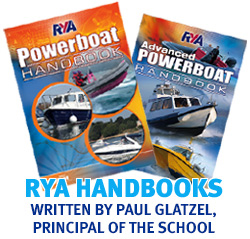
What is included in the course price? ~ when you undertake your Advanced Course on our boats then the price you pay includes Fuel (often charged as extra at the end of courses by schools), and free use of waterproofs/drysuits (once again often charged as an extra). Price includes VAT too – yet another common extra. From 2014 with the launch of the RYA Advanced Powerboat Handbook you get a free copy of this book written by us for the RYA.
Does the course price represent good value? ~ remember in life you pretty much get what you pay for. We don’t pretend to be the cheapest but the course will be on well maintained first rate craft, and run by instructors guaranteed to teach current best practice. We have great facilities in a large marina offering a great all-round experience. Check out the other relevant pages on this website to see what we mean.
Course prices ~ £360 per head for 1 person, £351 per head for 2 persons, £342 per head for 3 persons.
Some of the offers available when buying this course include…..
Special Offer No1!! Book and pay for your VHF Course at the same time as you book the Advanced course and only pay £75 for the VHF course (including course pack). (Usual cost is £100, you also need to pay the RYA Fee which is £60). You can choose whether to undertake the course in the classroom or online. We run VHF Courses every two weeks so fitting you in will never be an issue – we run these courses in Poole and Lymington.
Special Offer No2!! We also offer the opportunity to book the RYA Yachtmaster Theory Course (online version) for £280 when booked alongside an Advanced Powerboat course. For advanced users this is a great course to ensure that you have all of the background knowledge necessary to undertake longer passages.
Advanced Powerboat – on our boats - The Course
The Advanced powerboat course is aimed at experienced leisure powerboaters and professional users keen, or needing to, to develop their knowledge onto the next level.
It is a challenging course and gives students the chance to develop their capabilities and knowledge in a variety of areas. A key aspect of the course is the planning and execution of two passages – one by day and one by night. Equally, given that attendees are likely to be undertaking longer passages in less good conditions a key feature of the course is developing the capability of the skipper to manage the crew and boat taking decisions in challenging situations.
The quality of the Instructors makes a huge difference to the value you derive from the course. Our Advanced Instructors are hugely experienced and teach these courses throughout the year to a range of leisure, commercial and military users.
NB: If you want to work commercially you will need your Advanced Powerboat Exam – Advanced Powerboat
Your instructor will cover the following topics with you during your course:
- Preparation for sea
- Boat Handling (inc rough water)
- Passage making
- Meteorology
- Rules of the road
- Use of engines
- Emergency situations
- Undertaking searches
- Night cruising
Advanced Powerboat – on our boats - This course is aimed at

The pinnacle of the courses within the RYA powerboat scheme the Advanced Powerboat course suits:
- Experienced leisure users who tend to boat throughout the year keen to develop their understanding of areas such as rough water handling, search patterns and helicopter rescue. The opportunity to develop the capability to navigate at night is always a significant area of interest to attendees.
- Those keen to work commercially will almost certainly want to attend the Advanced Powerboat course before attending their Advanced Powerboat Examination as the course is a way to ensure that they are ‘doing it right’ and in a manner that is likely to prove acceptable to the examiner.
- Existing Powerboat Instructors keen to develop onto become an Advanced Powerboat Instructor will need to undertake the Advanced Course as one of the steps towards becoming an APBI.
- Existing commercial users operating at a level below the Advanced level will often use the advanced courses as a form of ‘Continuing Professional Development’ (CPD). to ensure those skippers continue to develop their skills
We can undertake Advanced Powerboat courses on your own boat subject to the craft being suitable for the course. We are able to run courses throughout the year at any location subject to the approval of the RYA.
Advanced Powerboat – on our boats - Syllabus
Aim: To teach boat handling, seamanship, pilotage and navigation up to the standards required to drive a planing powerboat safely by day and night in tidal coastal waters with which the candidate may be familiar.
Assumed knowledge: Candidates should be competent to the standard of the Intermediate Powerboat Certificate with a thorough knowledge of navigation and chart work to the level of the Yachtmaster Theory Shorebased certificate.
Candidates are recommended to hold a valid first aid certificate and a VHF operator’s certificate.
Understands: The subject will be covered in greater depth and you will be asked to demonstrate a basic understanding and go away from the course able to develop your own skill in this area.
Can: The subject will be covered in great depth, including background theory, demonstrations by the instructor and repeated practice by yourself until you can demonstrate good skills in the subject.
Preparation for Sea Can:
- Prepare the powerboat
- Carry out fuel and engine checks
- Stow and secure gear
Boat Handling Knowledge of:
- Differences for a twin engine vessel
Understands:
- The importance of boat control in waves and adequate seating to minimise the possibility of back injury
- Characteristics of various hull forms and propeller configurations
- Action to be taken in rough weather
- Demonstrate a practical understanding and correct use of power trip and trim tabs
- Demonstrate an awareness of the effects of wind and tide when manoeuvring, including:
- Steering to transits and in buoyed channels
- Turning in a confined space
- Berthing in various conditions of wind and tide
- Picking up and leaving a mooring buoy
- Demonstrate the use of an appropriate length kill cord at all times
Passage making and responsibility as Skipper Understands:
- The importance of pre-trip planning
- Planning and making coastal passages, taking into account the relevant navigational hazards,the type of boat and the strengths of the crew.
- Chart plotters and radar , their advantages and limitations
- Organise the navigation, safety and welfare of the crew during a powerboat passage
- Navigate at higher speed using a range of techniques
- Use electronic navigational equipment for planning and undertaking a passage, including the use of waypoints, routes and XTE, SOG, COG, BTW, DTW
Pilotage Can:
- Carry out pilotage plans and pilotage for entry into or departure from harbour
- Use leading and clearing lines, transits, back bearings and soundings as aids to pilotage
- Use GPS and understand its limitations in pilotage
- Navigate using soundings
Meteorology Understands:
- Terms used in shipping forecasts, including the Beaufort scale and their significance to small craft.
- Sources of forecast information and interpretation of forecasts including synoptic charts
- The significance of meteorological trends
- Interpret a Synoptic chart
- Use and interpret forecasts to make decisions about passages
Rules of the Road Can:
- Apply the International Regulations for Preventing Collisions at Sea
Use of Engines Knowledge of:
- How to change a propeller
- Propeller diameter and pitch
- Propeller ventilation and cavitations
- Checks to be made before starting, during running and after stopping for diesel and petrol engines
- Periodic checks on engines and electrical system including spark plugs, water filter and pump impellers
- Transmission belts
- Spares to be carried
Emergency Situations Understands:
- Correct action to take in emergency situations
- Fire prevention and fighting
- Hull damage/watertight integrity
- What to do in a medical emergency
- Towing and being towed
- Helicopter rescue procedures
- Issue distress by all available means
- Search patterns
- Pick up a man overboard in all available conditions
Night Cruising Can:
- Take charge of a powerboat at night, including leaving and entering harbour
- Demonstrate ability at keeping a proper lookout and identifying lit and unlit marks by night.
(Copyright Powerboat Training UK/RYA)
Advanced Powerboat – on our boats - Gallery

Advanced Powerboat – on our boats - Book Now
Thank you for your interest in this course.
Hopefully the dates that we have scheduled work well with your availability. If the dates don’t quite work then we are always keen to be as flexible as possible so please contact us and we’ll see what we can do.
We’re always really keen to chat to you when you’re booking a course as whilst we are happy to take bookings through this system for your convenience – nothing beats chatting about boats and courses!
Don’t forget too that if you are an individual or company/organisation booking a few people onto courses then we may be able to schedule dates around you. Equally, for bookings some time in the future we can usually juggle our course dates if what we have scheduled doesn’t quite work for you.
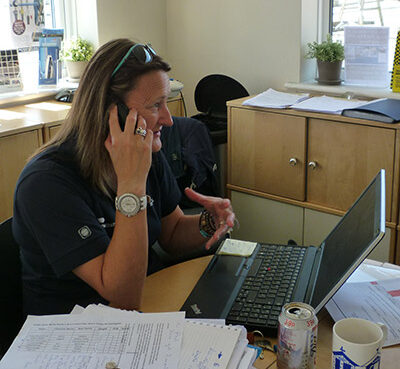
Get in touch
Where to find us...
Powerboat Training UK Ltd, The Slipway, Cobbs Quay Marina, Poole, Dorset, BH15 4EL
T: 01202 686666 E: [email protected]
Aquasafe Powerboat School, Lymington Yacht Haven, Kings Saltern Road, Lymington, Hampshire SO41 3QD
T: 01590 678809 E: [email protected]
Marine Education, Port of Poole Marina, Poole, Dorset BH15 1HJ
T: 01202 406066 E: [email protected]
Follow Us on...
Keep up to date with all the latest gossip and news
Register your interest in this course
At the moment it is not possible to book places on this particular course as we have marked it as full. However it may be that we are able to add additional people to this course or to add you to a reserve list in case someone already booked cannot attend. If this date is of particular interest to you please complete the form below and we will contact you to see what we can do to accommodate you.
Request a last minute space
At the moment it is not possible to book places on this particular course as we have marked it as closed due to it being very close to the course running. However it may be that we are able to add you to this course or to add you to a reserve list in case someone already booked cannot attend. If this is is of interest to you please complete the form below and we will contact you to see what we can do to accommodate you.

RYA Advanced Powerboat
Become competent in driving powerboats up to 24m.
Find out About the RYA Advanced Powerboat Course / Certification
Find an Advanced Powerboat Course / Exam
The RYA Advanced Powerboat is a 2 day (and 1 night) course that builds confidence and competency in boat handling, seamanship, pilotage, and navigation in more challenging conditions (day & night). An examination is required for candidates who wish to attain an Advanced Powerboat Certificate of Competence (‘CoC’). A commercially endorsed CoC allows the individual to operate craft commercially up to 20 miles from a safe haven by day or night. It is a step-up license from the Power Boat Level II, suitable for deck crew looking to operate larger tenders, further distances with confidence and competence.
Course prerequisites / assumed knowledge.
- Competent handling to the standard of the Intermediate Powerboat Certificate
- Knowledge of navigation and chartwork to the level of Coastal Skipper
- First aid certificate (Elementary First Aid as part of STCW Basic Training meets the requirement) (a prerequisite for the exam)
- VHF SRC or higher certificate (a prerequisite for the exam)
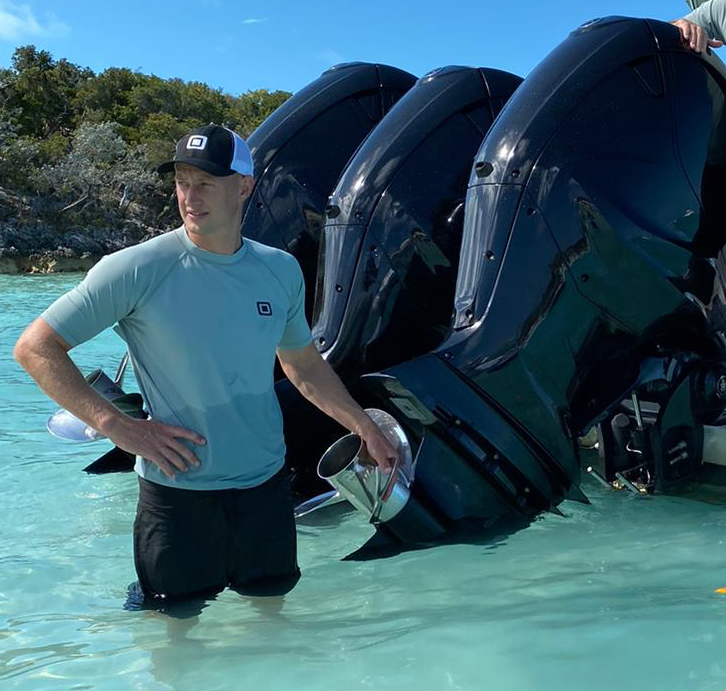
Minimum Duration:
The course runs over a minimum of 2 days which must include at least 1-night navigation exercise.
Course Outline:
- Preparation for Sea
- Boat Handling
- Passage Making and Responsibility as Skipper
- Meteorology
- Rules of the Road
- Use of Engines
- Emergency Situations
- Night Cruising
Course Outcome:
Upon completion of this course, the student will be able to plan and execute coastal trips and return to a familiar port or superyacht by day and night.
Those who wish to obtain an Advanced Powerboat Certificate of Competency must pass the Advanced Powerboat Examination
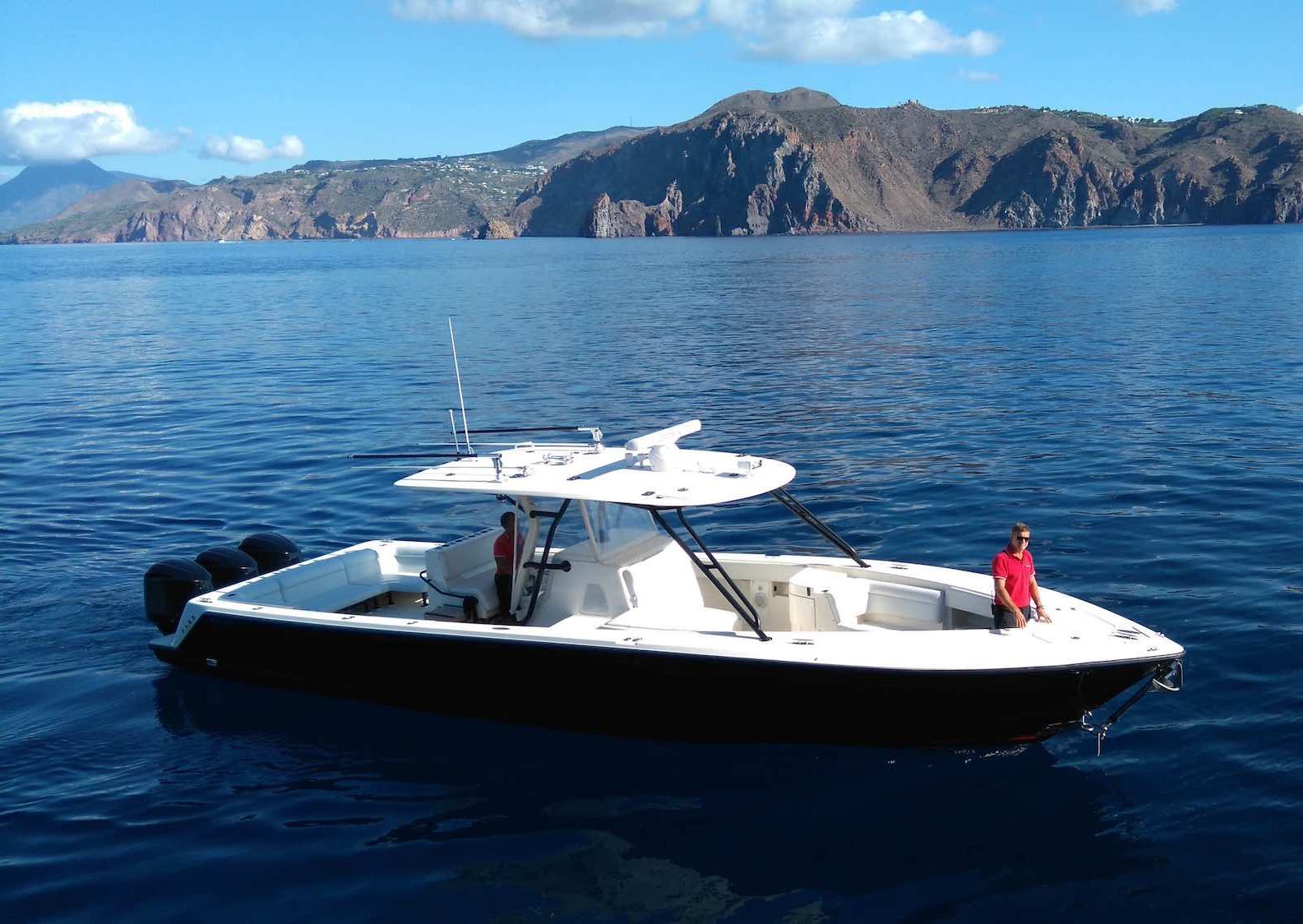
RYA Advanced Powerboat Exam (Practical)
Prerequisites:.
Seatime required: (If the below sea time requirement is met, and the student has the required knowledge, the exam can be taken without completing the Advanced Powerboat course. Completion of the course will reduce the sea time and experience requirement. Please view information on the RYA website or contact a training provider through the links at the bottom of this page for more details)
- 30 days at sea, which may be reduced to 20 days at sea if an RYA Advanced Powerboat course completion certificate is held;
- 2 days as skipper;
- 800 miles, which may be reduced to 400 miles if an RYA Advanced Powerboat Course completion certificate is held;
- 12 night hours.
Certification / qualifications required:
- A GMDSS-compliant Marine Radio Operator's Certificate such as the RYA Short Range Certificate or higher
- Valid first aid certificate (the STCW Elementary First Aid meets these requirements for yacht crew who have completed their basic training.
Exam duration:
- 4-7 hours depending on the number of candidates. COntact an exam facilitator to find out more information.
Commercially Endorsed Advanced Powerboat Coc (Certificate of Competence)
Provided the exam is passed and the prerequisites are met, this certificate can be commercially endorsed with allowing the crew members to drive commercial vessels up to 24m in length, subject to MCA’s codes of practice, the flag under which the vessel operates as well as the region. This makes the course a viable option for the crew members who need to drive large tenders but do not hold Yachtmaster certifications.
Find an RYA Advanced Powerboat Training/ Exam Provider:
Croatia Split
Spain Barcelona
United Kingdom
England Cornwall Plymouth
Username or Email Address *
Remember me Lost your password?
Username or Email
Get New Password

Advanced Powerboat Syllabus
Aim: To teach boat handling, seamanship, pilotage and navigation up to the standards required to drive a planing powerboat safely by day and night in tidal coastal waters with which the candidate may be familiar.
- Practical Prepare the powerboat Carry our fuel and engine checks Stow and secure gear Differences for a twin engine vessel Characteristics of various hull forms and propeller configurations Action to be taken in rough weather Demonstrate a practical understanding and correct use of power trim and trim tabs Demonstrate an awareness of the effects of wind and tide when manoeuvring, including: Steering in transits and in buoyed channels Turning in a confined space Berthing in various conditions of wind and tide Picking up and leaving a mooring buoy Demonstrate the use of an appropriate length of kill cord at all times The importance of pre-trip planning Planning and making coastal passages, taking into account the relevant navigational hazards, the type of boat and the strengths of the crew Chart plotters and radar, their advantages and limitations Organise the navigation, safety and welfare of the crew during a powerboat passage Navigate at higher speed using time / distance Use electronic navigational equipment for planning and undertaking a passage, including the use of waypoints, routes and XTE, SOG, COG, BTW, DTW Carry out pilotage plans and pilotage entry into or departure from harbour Use leading and clearing lines, transits, back bearings and soundings as aids to pilotage Use GPS and understands it limitations in pilotage Navigate using soundings Terms used in shipping forecasts, inclusing the Beaufort Scale, and their significance to small craft Sources of forecast information and interpretation of forecasts including synoptic charts The significance of meteorological trends Can interpret a synoptic chart Apply the International Regulations for Preventing Collisions at Sea How to change a propeller Propeller diameter and pitch Propeller ventilation and cavitation Checks to be made before starting, during running, amd afetr stopping for diesel and petrol engines Periodic checks on engines and electrical systems including spark plugs, water filters and pump impellers How to bleed the fuel system (diesel), change filters and pump impellers Transmission belts Spares to be carried Correct action to take in emergency situations Fire prevention and fighting Hull damage / watertight integrity What to do in a medical emergency Towing and being towed Helicopter rescue procedures Use of flares Search patterns Pick up a man overboard in all available conditions Take charge of a powerboat at night, including leaving and entering harbour Demonstrate ability at keeping a proper lookout and identifying lit and unlit marks by night
Advanced Powerboat Examination
- Preparation for sea Preparation of vessel Safety brief Stowing and securing gear for coastal passages Engine operations and routine checks, fuel systems, kill cord Fuel system, bleeding, changing filters and impellers
- Boat handling Hull forms and their handling characteristics, propeller confirgurations Knowledge of action to be taken in rough weather Significance of tidal stream on sea conditions Steering and power control through waves Understanding and correct use of power trim and tabs Towing, under open sea conditions and in confined areas Strategy up and downwind and in heavy weather Awareness of the effects of wind and tide when manoeuvring, including: Steering to transits and in buoyed channels Turning in a confined space All berthing and un-berthing Picking up and leaving a mooring buoy Anchoring Recovery of man overboard Awareness of ground speed and ability to hold the boat on station
- Responsibilities Skippering the vessel with effective crew communication Preparing the vessel for sea and for adverse weather Tactics for heavy weather and restricted visibility Emergency and distress situations Customs procedures Courtesy to other water users
- Passage making and pilotage Your chart work and theory knowledge should include: Charts, navigational publications and sources of navigational information Chart work, including position fixing and shaping course to allow for tide Tidal heights and depths Buoyage and visual aids to navigation Instruments, inclusing compasses, logs, echo sounders, radio navigation aids and chart work instruments Passage planning and navigational tactics Importance of pre-plannig High speed navigation, pre-planning and execute Use of electronic navigation (GPS & Radar) Pilotage techniques and plans for entry into or departure from harbour Use of leading and clearing lines, transits and soundings as aids to pilotage Navigational records Limits of navigational accuracy and margins of safety Lee shore dangers You should be able to enter and depart from a charted port by day or night. Your examiner will give you a pilotage exercise and ask you to explain your planning. You will need to be aware of the problems of collision avoidance and how to determine your position by night.
- Meteorology You should be able to use weather and tidal information to predict likely sea conditions and make passage planning decisions. Definition of terms incuding Beaufort Scale, and their significance to small craft. Sources of weather forecasts Weather systems and local weather effects Interpretation of weather forecasts, barometric trends and visible phenomena Ability to make passage planning decisions based on forecast information
- Rules of the road Application of the International Regulations for Preventing Collisions at Sea. You should be able to identify power and sailing vessels by night. Identification of types of ship by night is not required, but you will need a knowledge of the lights of tugs and trawlers.
- Safety Candidates will be expected to know what safety equipment should be carried on board the vessel, based either on the recommendations in RYA booklet C8, or the Codes of Practice for the Safety of Small Commercial Vessels. In particular, candidates must know the responsibilities of a skipper in relation to: Fire prevention and fighting Hull damage / watertight integrity Medical emergency Towing and being towed VHF emergency procedures Explanation of helicopter rescue procedures Use of flares Man overboard Sector search Lifejackets Life rafts

Compass Sea School Ltd
The highland's premier motor cruising, sailing, powerboating and shorebased training centre, inverness marina – capital of the highlands.

Advanced Powerboat Course
Run over 2 days and a evening (night exercise), the Advanced Powerboat course is designed to teach boat handling, seamanship, pilotage and navigation up to the standards required to drive a planing powerboat safely by day and night in coastal waters.
Addresses areas such as night navigation, using on-board electronics, rough water handling and search patterns – a great course!
Courses all use our Raymarine Axiom plotter and Quantum Radar as part of a #digitalfirst planning and pilotage methodology.
Courses usually run Between mid September and End March
- Course Content
- Previous Experience
- Course Timings
- Minimum Age
- Student Ratios
- You need to bring
- Advanced CoC (Commercial Endorsement)
The Advanced Powerboat course is aimed at the more experienced powerboat handler and assumes you can handle a powerboat very well as it is about developing your skills rather than starting them! It also assumes you understand navigation to the level of Yachtmaster/Coastal Skipper Theory (although you don’t actually need the qualification). We would always suggest that we have a chat with you about your experience before you book the course to ensure that this is the best course for you
Run over 2 days and a evening (night exercise), the Advanced Powerboat course is designed to teach boat handling, seamanship, pilotage and navigation up to the standards required to drive a planing powerboat safely by day and night in coastal waters.
Ability at the end of the course:
- To be able to plan and execute coastal trips and return to a familiar port by night.
- Preparation for Sea
- Boat Handling
- Action to be taken in rough weather
- Passage making and responsibility as Skipper
- Rules of the Road
- Use of Engines
- Towing and being Towed
- Helicopter Rescue procedures
- Search patterns
- Night Cruising
Aimed at experienced leisure boaters and those seeking to work commercially the Advanced Course can be followed by the Advanced Examination.
The pinnacle of the courses within the RYA powerboat scheme the Advanced Powerboat course suits:
- Experienced leisure users who tend to boat throughout the year keen to develop their understanding of areas such as rough water handling, search patterns and helicopter rescue. The opportunity to develop the capability to navigate at night is always a significant area of interest to attendees.
- Those keen to work commercially will almost certainly want to attend the Advanced Powerboat course before attending their Advanced Powerboat Examination as the course is a way to ensure that they are ‘doing it right’ and in a manner that is likely to prove acceptable to the examiner.
- Existing Powerboat Instructors keen to develop onto become an Advanced Powerboat Instructor will need to undertake the Advanced Course as one of the steps towards becoming an APBI.
- Existing commercial users operating at a level below the Advanced level will often use the advanced courses as a form of ‘Continuing Professional Development’ (CPD). to ensure those skippers continue to develop their skills
- The course assumes you can handle a powerboat very well as it is about developing your skills rather than starting them!
- Candidates should be competent to more than the standard of the Intermediate Powerboat Certificate.
- It also assumes you understand navigation to the level of at LEAST Day Skipper Theory ideally you will be at the Coastal Skipper/Yachtmaster offshore theory standard
- It is strongly recommended that candidates hold a first aid certificate and a VHF operators certificate.
- Courses usually start at 0900 and will finish around 3-4 hours after it gets dark on day 1 to accommodate the night exercise.
- Day 2 starts at 0900 and we aim to finish by 1700 – please check your booking confirmation for details
Minimum Duration: 2 days including a night passage
17 years old
This course operates with a maximum of 3 students per instructor/vessel
- Passport Photograph – essential for us to issue your certificate.
- Your certificates/Powerboat Logbook i.e. RYA Intermediate certificate, VHF-SRC, Theory certificates
If you are looking to achieve a Commercial Endorsement at Advanced PB level you will need to conduct the Advanced Certificate of Competence (CoC) Exam.
Please note that the Advanced Powerboat Course CAN NOT be commercially endorsed
Looking to work commercially?
Read more about powerboating from our blog

How do I get the RYA Advanced Certificate of Competence?

What certificates/licences do you need to work commercially with Motor / Powerboats?
Home Course Types
Course Types
About our courses, us powerboating's philosophy is that there is no substitute for practical, hands-on experience. after all, you wouldn't drive a car without taking driver's education so consider us your source for driver’s education for boaters tm ..
Our courses are offered at over 100 Course Providers and Powerboat Training Centers around the country and are taught by knowledgeable, professional instructors who are dedicated to ensuring you get the most out of your educational experience. With offerings ranging from beginner to advanced, we are sure we have something for everyone.
We strive to emphasize the fun side of boating while ensuring that you feel safe, comfortable and confident!
In addition to practical training, we offer comprehensive books and videos designed to help you learn quickly and easily. As a partner of the United States Coast Guard, we understand the value of high quality education and importance of safe boating practices.
What course is right for me?
Safe powerboat handling.
Safe Powerboat Handling combines classroom instruction with practical, hands-on experience. This course is run on boats 26 feet and under.
Recommended for:
- New boaters
- First-time boat owners
- Sailing instructors and coaches
- Race committee crews
- Advanced boaters looking to brush up on skills
- Professional mariners
Accelerated Safe Powerboat Handling
This course focuses on the practical application of skills, consequently it is NOT approved by the U.S. Coast Guard or the National Association of State Boating Law Administrators (NASBLA) as meeting requirements for a state boating safety education certificate.

Safety & Rescue Boat Handling
Safety & Rescue Boat Handling topics range from equipment, preparation and operator and crew responsibilities during an emergency to the practical techniques used in rescue situations.
- Mark boat operators
- First responders
Mark-Set Boat Handling
Coming Soon
Combination Courses
Typically reserved for more advanced students, our courses can be combined to assist those who have limited opportunity to receive training. Common examples of Combination Courses include: Accelerated Safe Powerboat Handling + Safety & Rescue Boat Handling or Safety & Rescue Boat Handling + Mark-Set Boat Handling.
Powerboat Instructor Courses
We are always in need of skilled Instructors to teach our courses. If you have a passion for teaching others and promoting boating safety, we want to speak with you!
- Experienced Boaters
- Marine Industry Professionals
- Certified Sailing Instructors
Safe Powerboat Handling Instructor
Cruising powerboat instructor, basic powerboat cruising.
The Basic Powerboat Cruising course will teach you how to responsibly operate a powered cruising vessel during daylight hours within sight of land in light to moderate wind and sea conditions. This course is run on boats 26 feet and over, with a head, galley, berth, single or twin screwed.
Inshore Powerboat Cruising
Our Inshore Powerboat Cruising course will teach you to responsibly operate a cruising powerboat within sight of land for multiple days in unfamiliar waters.
Copyright ©2018-2024 US Powerboating. All rights reserved. Website designed & developed by Design Principles, Inc.

Chieftain Training
RYA & STCW Courses – Sail, Power, Super-Yacht & Workboat
RYA Powerboat Advanced
Who is the rya powerboat advanced course for.
So, you want to go fast, travel at night, handle waves and integrate your boating with the digital world? The RYA Advanced Powerboat course covers all this and a whole lot more. If you think it’s time you took your boat further afield or out in more challenging conditions, then this intensive and fun two days should help bring you up to scratch. Advanced students are a mix of leisure and commercial powerboat skippers.
HOW LONG DOES THE RYA POWERBOAT ADVANCED COURSE TAKE?
2 days, including a night navigation, planing speed exercise on the first evening.
DAY 1 HOURS
- Day 1 Start Time- 0915
- Day 1 Finish Time- 3 to 4 hours after dusk (2000 in December, much later in June)
DAY 2 HOURS
- Winter – 0915 to 1600
- Summer – A shorter day as we will have covered more of the syllabus the preceding day
RYA POWERBOAT ADVANCED COURSE ESSENTIAL PRE REQUISITES:
- RYA Powerboat Level 2
- RYA Intermediate Powerboat (or equivalent experience)
- Navigation knowledge up to RYA Yachtmaster Offshore Shorebased
- RYA First Aid or STCW Elementary First Aid
- RYA SRC or higher level GMDSS cert

COURSE CONTENT
The course embraces the use of digital resources for passage plan and safe navigation. It also includes advanced boat handling, planing-speed navigation, night pilotage, rough weather handling, search patterns and emergency actions.
WHAT RATIO IS THE RYA POWERBOAT ADVANCED COURSE TAUGHT TO?
There is a maximum of three students per boat and per instructor.
- Two days and a night of instruction
- Use of our RIB (Rigid Inflatable Boat)
- All fuel and consumables
- Loan of a life jacket (fitted with light)
- RYA Advanced Powerboat Certificate
- Free (on street) parking
- Tea & Coffee
NOT INCLUDED
- Wet weather gear (can be hired for £5 a day)
CAN I ADD A COMMERCIAL ENDORSEMENT TO THE RYA POWERBOAT ADVANCED CERTIFICATE?
If your Advanced certificate was issued before 1 January 2005 it can be commercially endorsed as a certificate of competence. If however your Advanced certificate is dated on or after this date you need to progress onto the RYA/MCA Advanced Powerboat Certificate of competence which can be commercially endorsed .
The commercial endorsement will allow you to operate commercially operated powered craft up to 24m, (assuming relevant experience) up to 20 miles from a safe haven by day and night with no weather or seasonal restrictions.
Share this:
- Certificates of Competence
RYA Advanced Powerboat Exam
Full details of the exam syllabus and requirements are shown in the RYA's Powerboat Logbook (code G20) available from the webshop.
Boats used for exams
You may use your own boat or a boat that you have chartered or borrowed. You will be responsible for ensuring the boat is seaworthy and suitable for the area in which the exam takes place and equipped as shown below.
The vessel must be capable of a minimum of 12 knots, equipped with the following:
- lights conforming with IRPCS
- VHF radio (may be portable)
- GPS (may be hand held) or plotter
- depth sounder
- anchor, chain and warp
- basic tool kit and spares
- heaving line
- paddles or additional means of propulsion
- flares: 2 hand held, 2 orange smoke
- bilge pump or buckets/bailer
- first aid kit
Additionally if not on the boat, you will need to bring to the exam:
- laminated or waterproof charts
- GPS set (may be hand held)
- tide tables
- pilotage information for the local area, eg pilot books, port information etc
- plotting instruments.
- Photographic ID card or document, such as a passport or driving licence
Advanced Powerboat exam pre-requisites
Before you book your exam please check that you:
- can provide a boat
- have completed the required mileage and experience as skipper
- hold a VHF Radio Operators License or Short Range Certificate
- hold a valid first aid certificate
- have read the syllabus in RYA publication G20
- have read and comply with the pre-requisites above.
Candidates should be familiar with all the equipment on board the vessel, as they may be asked to use this during the examination.
If you need your Certificate of Competence in order to work on board a commercial craft subject the MCA's codes of practice, you will need to get it commercially endorsed .
Useful links
Arranging your exam, commercial endorsements, exam payments service, mca manning requirements, professional qualifications.

Advanced Powerboat Course
Looking to take your boating skills to the next level? Look no further than the Irish Sailing Advanced Powerboat Course at Atlantic Marine Training.
This course is designed for experienced powerboaters who are looking to take on more challenging conditions and gain the skills needed to achieve the commercial endorsement. Led by experienced instructors, you'll learn about advanced navigation techniques, night-time operations, and handling in heavy weather.
The course also covers more technical aspects of powerboat operation. With small class sizes and hands-on instruction, you'll get plenty of opportunities to practise your new skills and ask questions.
At the end of the course, you'll receive an Irish Sailing Advanced Powerboat certificate, which can be used to earn your commercial endorsement and can be a valuable addition to your resume or CV.
Whether you're looking to gain your commercial endorsement, explore new waters, or just become a more skilled and knowledgeable powerboater, the Irish Sailing Advanced Powerboat Course is the perfect way to take your boating skills to the next level. Sign up today and join the ranks of confident and capable powerboaters!
Previous knowledge
National Powerboat Certificate and Coastal Navigation for Small Boats Certificate
2 days (including 1 night run)
Locations available
Rosaveel Marina, Galway or Kilmore Quay, Wexford
What to bring
Suitable footwear
Equipment provided
Full PPE and lifejacket
Number of students
4 students using 1 vessel or 6 using 2 vessels
Accreditation
Irish Sailing – Advanced Powerboat Certificate
Minimum Age
- Back to Training Support Home
This section is for people wanting to teach, the RYA Powerboat Scheme.
This scheme can be taught in a variety of small open powerboats such as RIBs, dories and sportsboats and is aimed at a variety of users from casual leisure boaters to professional small boat skippers. As an instructor you will therefore need to have experience in a variety of boats and situations.
Powerboat Instructor
Advanced powerboat instructor, powerboat trainer, powerboat advanced trainer.
Related documents Instructor observation form
Related pages Who Teaches What Guidance on running the Tender Operator Course Regional courses and training for instructors Revalidate your instructor certificate Tell us if you're available for work
National Maritime College of Ireland
National maritime college of ireland coláiste náisiúnta mara na héireann.
- NMCI Training Services Blog
- Account Login
- Academic Courses
- Commercial Courses
Relish the challenge of working with the sea.
In this section:.
- STCW'95 & Non STCW'95
- Short Route Refresher (3day)
- Long Route Refresher (5day)
- Port Sector
- Offshore & Renewable Courses
- Petrochemical, Oil and Commodities
- Specialised
- Facility Hire
- Port of Cork Partnership
- GAC Training & Service Solutions (GTSS)
- Press Releases
- Testimonials
- Superyacht Courses
- IS Powerboat & Water Safety
- Teambuilding
Advanced Powerboat Certificate
Download PDF
- Download Course As PDF
Please contact us for more information.
Contact us for bespoke dates
Course Name:
Course price:.
Price available on request
Short Description:
Course type:.
Specialised Courses
Full Description:
Advanced Powerboat Certificate.
Previous knowledge / experience:
Participants must hold the IS National Powerboat Certificate or an equivalent certificate.
Duration: The Advanced Powerboat Course should ordinarily consist of a minimum of 3 days contact time. This will include a pilotage exercise conducted at night.
http://www.sailing.ie/Portals/0/Advanced-Powerboat-Certificate.pdf
© 2024 National Maritime College of Ireland | Ringaskiddy, Co. Cork, Ireland. P: +353 (0)21 433 5600 | F: +353 (0)21 433 5601 | E: [email protected] NMCITS/GTSS: +353 (0)21 433 5609
- Terms of Use
- Staff Webmail
Web Design by Granite Digital
SAILING SCHOOL
12 knots sailing courses.
Weather forecast
Learn how to read clouds and winds like a pro

Competent Crew
Introduction to sailing. Learn how to become an active crew
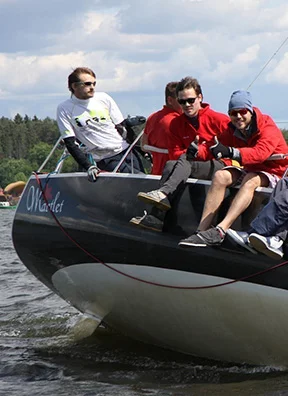
Bareboat Skipper
Recreational sailing yacht skipper of vessels up to 78 feet
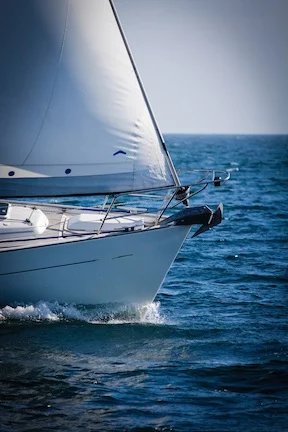
Issued documents
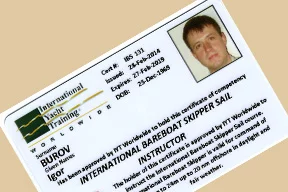
10 days live aboard course on power or sailing yacht. The key objective of the course is to teach candidates to become a recreational sailing yacht skipper and be able to charter and handle big cruising yachts on their own.
Ideal for those who already have little sailing experience and would like to learn coastal navigation.
- navigation at sea
- collision regulations
- practice at sea 200nm
- Skipper on a yacht up to 78ft. / 24m
- 20 miles offshore in day time
- in moderate weather conditions

5-day sailing course on board of a cruising yacht. The main objective of the course is to teach basic sailing terminology, parts and functions, basic sail trim, helm commands, seamanship and safety.
Ideal for candidates with little to no previous sailing experience who wish to train to become an active crew member on a power or sailing yacht.
- no special requirements
- Crew on a yacht up to 78ft. / 24m
- in sight of land and in fair weather
- only with professional skipper
Choose your sailing program. Where to start?
Introduction to sailing, on the coast.
Sailing knots - 3 hours
Understanding of the boat - 3 hours
On the water
Basic keelboat - 3 hours
Basic cruising
Safety on board - 3 hours
Live aboard sailing boat - 5 days
Live aboard power boat - 7 days
Bareboat cruising
Mandatory shore-based course for navigation and collision regulations at sea
Passage planning
Collision regulations
Practice at sea
Sailing boat - 10 days
Motor boat - 7 days
Advanced coastal cruising
Take additional shore-based courses prior to practice at sea
Long-term passage planning
Tidal navigation
Night sailing
Celestial navigation
Live-aboard course in tidal waters
Sailing yacht - 7 days
Upcoming courses
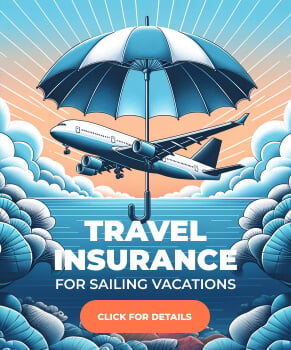
Blue water sailing practice
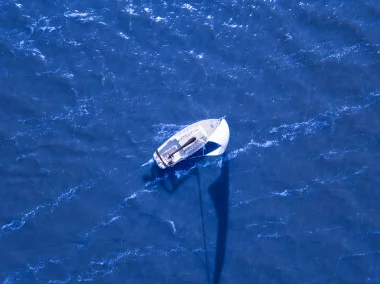
Availability
Competent crew
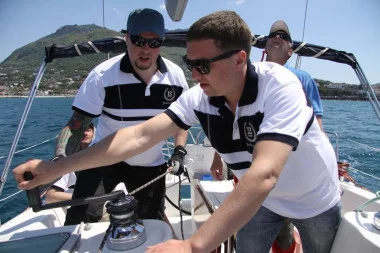
Marine weather forecasting
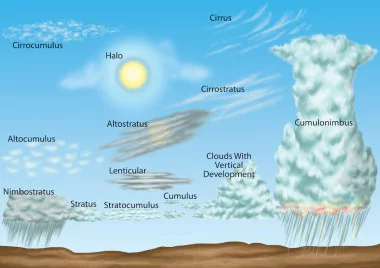
powerboat courses bluewater

Ukraine's Quest for Air Parity: A Call for F-16 Fighting Falcons Amid Russian Aerial Dominance
U krainian President Volodymyr Zelensky said in an interview with Agence France-Presse (AFP) that Kyiv would need 120 to 130 F-16 fighters or other advanced warplanes to battle Russia.
Moscow had repeatedly stated that flooding Ukraine with weapons would neither affect Russian resolve nor change the course of its special military operation. It has also threatened to annihilate F-16 fighters and called them no match to Su-35 fighters. Despite Russian assertion, Kyiv has been aggressively requesting for F-16 fighting falcons and believes they could be game changers in the ongoing War.
The F-16 Fighting Falcon, a symbol of aerial prowess and versatility, has been a cornerstone of numerous air forces around the world since its introduction in the 1970s. Developed by General Dynamics (now Lockheed Martin) for the United States Air Force, the F-16 is a multi-role fighter known for its agility, advanced avionics, and adaptability to a variety of combat scenarios. The USAF has praised the aircraft for its exceptional combat radius and all-weather targeting capabilities. With its rich operational history, the F-16 has engaged in key conflicts from Operation Desert Storm to interventions in the Balkans, Afghanistan, and Iraq, often swaying the tide of battle in favor of its users.
The precedent for F-16 utility in conflict zones is well-established. In 1982, during the Lebanon War, Israeli F-16s achieved 44 air-to-air kills with no losses, a testament to the aircraft’s prowess in air combat. The F-16 has since continued to perform crucial duties for the IAF. F-16I Sufas comprised most of the aircraft that attacked the group’s underground tunnel network and other weapons dumps during a 2021 Israel-Hamas flare-up in Gaza. Iranian soldiers and militias that support Iran have also been targeted by IAF F-16s in Syria. On February 10, 2018, a Syrian Air Defense Force S-200 surface-to-air missile targeted an IAF F-16I, shooting it down in northern Israel.
The pilot and navigator safely ejected onto Israeli soil. After an Iranian drone violated Israeli airspace and was shot down, the F-16I took part in a bombing mission against Syrian and Iranian targets near Damascus. According to an IAF investigation conducted on February 27, 2018, the loss was attributed to pilot error because the aircrew did not adequately defend themselves.
Barring this one loss, the warplane has proved to be a force multiplier for the IAF despite their purchase of the F-35s. Experts have cautioned that the F-16s might have a challenging time when Ukraine deploys them against Russia despite their successful combat record.
Relevant articles:
– Ukraine Needs 100+ F-16 Fighting Falcons To Have Parity With Russian Air Force — Volodymyr Zelensky , EurAsian Times, 05/19/2024
– Putin says Russia will not attack NATO, but F-16s will be shot down in Ukraine , Yahoo News Canada, 05/17/2024
– Egypt goes shopping for pick and mix… , Arabian Aerospace, 05/17/2024
Glad you enjoyed above story, be sure to follow TrendyDigests on Microsoft Start.
![Ukrainian President Volodymyr Zelensky said in an interview with Agence France-Presse (AFP) that Kyiv would need 120 to 130 F-16 fighters or other advanced warplanes to battle Russia. Moscow had repeatedly stated that flooding Ukraine with weapons would neither affect Russian resolve nor change the course of its special military operation. It has also threatened […] Ukrainian President Volodymyr Zelensky said in an interview with Agence France-Presse (AFP) that Kyiv would need 120 to 130 F-16 fighters or other advanced warplanes to battle Russia. Moscow had repeatedly stated that flooding Ukraine with weapons would neither affect Russian resolve nor change the course of its special military operation. It has also threatened […]](https://img-s-msn-com.akamaized.net/tenant/amp/entityid/BB1mDGeQ.img?w=600&h=400&m=6)

IMAGES
COMMENTS
Powerboat Advanced Course. Aims to teach boat handling, seamanship, pilotage and navigation up to the standards required to drive a planing powerboat safely by day and night in tidal coastal waters, with which the candidate may be familiar, in more demanding conditions. Given the nature of these passages Advanced Powerboat courses should be ...
An intensive 3-day course for advanced powerboat operators who will operate boats 26 feet and under, instructor candidates will learn the fundamentals of on-the-water instruction. Candidates must successfully demonstrate superior presentation, teaching and powerboat operation skills in order to complete this course. Upon graduation, instructors ...
An RYA First Aid Certificate or another valid first aid certificate, as detailed on the RYA website. Advanced Powerboat course completion certificate ONLY IF claiming reduced sea time detailed above. Photographic ID card or document, such as passport or driving license. Minimum exam duration. 1 Candidate: 4 to 5 hours. 2 candidates: 5 to 6 hours.
a) A course completion certificate awarded by a training centre on successful completion of a two-day training course. b) A certificate of competence awarded by the RYA/MCA on successful completion of an exam. If you need a Powerboat Advanced certificate in order to work on board a commercial craft subject to the MCA's codes of practice, you ...
The RYA Powerboat Advanced Course is the pinnacle of the RYA Powerboat scheme and usually requires students to have been Coastal Powerboating for several seasons. We are always happy to advise you, so do call. Our fully inclusive RYA Advanced Powerboat Course costs just £299 per person for this 2 day course and runs from our Southampton base.
This is an advanced level course for powerboat drivers who already have some intermediate level skills, knowledge and experience. To join this course you must: be competent to the standard of the RYA Intermediate Powerboat certificate; have a thorough knowledge of navigation and chart work, to the level of Coastal Skipper/RYA Yachtmaster ...
The Advanced powerboat course is aimed at experienced leisure powerboaters and professional users keen, or needing to, to develop their knowledge onto the next level. It is a challenging course and gives students the chance to develop their capabilities and knowledge in a variety of areas. A key aspect of the course is the planning and ...
a) A course completion certificate awarded by a training centre on successful completion of a two-day training course. b) A certificate of competence awarded by the RYA/MCA on successful completion of an exam. If you need a Powerboat Advanced certificate in order to work on board a commercial craft subject to the MCA's codes of practice, you ...
The RYA Advanced Powerboat is a 2 day (and 1 night) course that builds confidence and competency in boat handling, seamanship, pilotage, and navigation in more challenging conditions (day & night). An examination is required for candidates who wish to attain an Advanced Powerboat Certificate of Competence ('CoC').
Advanced Powerboat Syllabus. Aim: To teach boat handling, seamanship, pilotage and navigation up to the standards required to drive a planing powerboat safely by day and night in tidal coastal waters with which the candidate may be familiar. Practical. Prepare the powerboat. Carry our fuel and engine checks.
Advanced Powerboat Course. Run over 2 days and a evening (night exercise), the Advanced Powerboat course is designed to teach boat handling, seamanship, pilotage and navigation up to the standards required to drive a planing powerboat safely by day and night in coastal waters. ...
In this (not so) brief video, Paul Glatzel explains in detail what should you expect in the day of your Advanced Powerboat Exam. He explains what the exam pr...
Our courses are offered at over 100 Course Providers and Powerboat Training Centers around the country and are taught by knowledgeable, professional instructors who are dedicated to ensuring you get the most out of your educational experience. With offerings ranging from beginner to advanced, we are sure we have something for everyone.
The RYA Advanced Powerboat course covers all this and a whole lot more. If you think it's time you took your boat further afield or out in more challenging conditions, then this intensive and fun two days should help bring you up to scratch. Advanced students are a mix of leisure and commercial powerboat skippers.
An RYA First Aid Certificate or another valid first aid certificate, as detailed on the RYA website. Advanced Powerboat course completion certificate ONLY IF claiming reduced sea time detailed above. Photographic ID card or document, such as passport or driving license. Minimum exam duration. 1 Candidate: 4 to 5 hours. 2 candidates: 5 to 6 hours.
RYA Advanced Powerboat Course Course Pre-Requisites: • Minimum Age: 17 years • Theory Knowledge to the level of RYA Yachtmaster Offshore • High level of powerboat handling skills Syllabus: Preparation for Sea & Safety • Preparation of powerboat & crew Boat Handling • Picking up & leaving a Mooring Buoy • Man overboard • Marina Work: Berthing & leaving in various conditions ...
Led by experienced instructors, you'll learn about advanced navigation techniques, night-time operations, and handling in heavy weather. The course also covers more technical aspects of powerboat operation. With small class sizes and hands-on instruction, you'll get plenty of opportunities to practise your new skills and ask questions.
Powerboat Instructor Intermediate or Advanced Powerboat course completion certificate Knowledge to level of Day Skipper Theory Professional Practices and Responsibilities. Experience. Experienced Powerboat Instructor with a strong knowledge of the syllabi for all courses in the RYA Powerboat Scheme. Must have strong skills in diplomacy and tact.
Full Description: Advanced Powerboat Certificate. Previous knowledge / experience: Participants must hold the IS National Powerboat Certificate or an equivalent certificate. Duration: The Advanced Powerboat Course should ordinarily consist of a minimum of 3 days contact time. This will include a pilotage exercise conducted at night.
Competent crew. Montenegro / Croatia. Learn to sail on catamaran or monohull. This program is ideal for those candidates who wish to become an active crew member on a power or sailing yacht or to learn how to operate small sailing…. 5. 7 days. live aboard. from $131. per person per day.
RYA Powerboat Level 2. Learn how to drive a powerboat safely. This 2-day course includes learning skills such as close quarters handling, high speed manoeuvres, man overboard reco
Ukrainian President Volodymyr Zelensky said in an interview with Agence France-Presse (AFP) that Kyiv would need 120 to 130 F-16 fighters or other advanced warplanes to battle Russia. Moscow had ...
The RT-130 modules provide a range of training options to meet NWCG position training requirements and agency-specific RT-130 course-hours requirements. The intent of the NWCG Executive Board is that, regardless of the agency-specific RT-130 course-hours requirements, all RT-130 training covers the core components identified below.